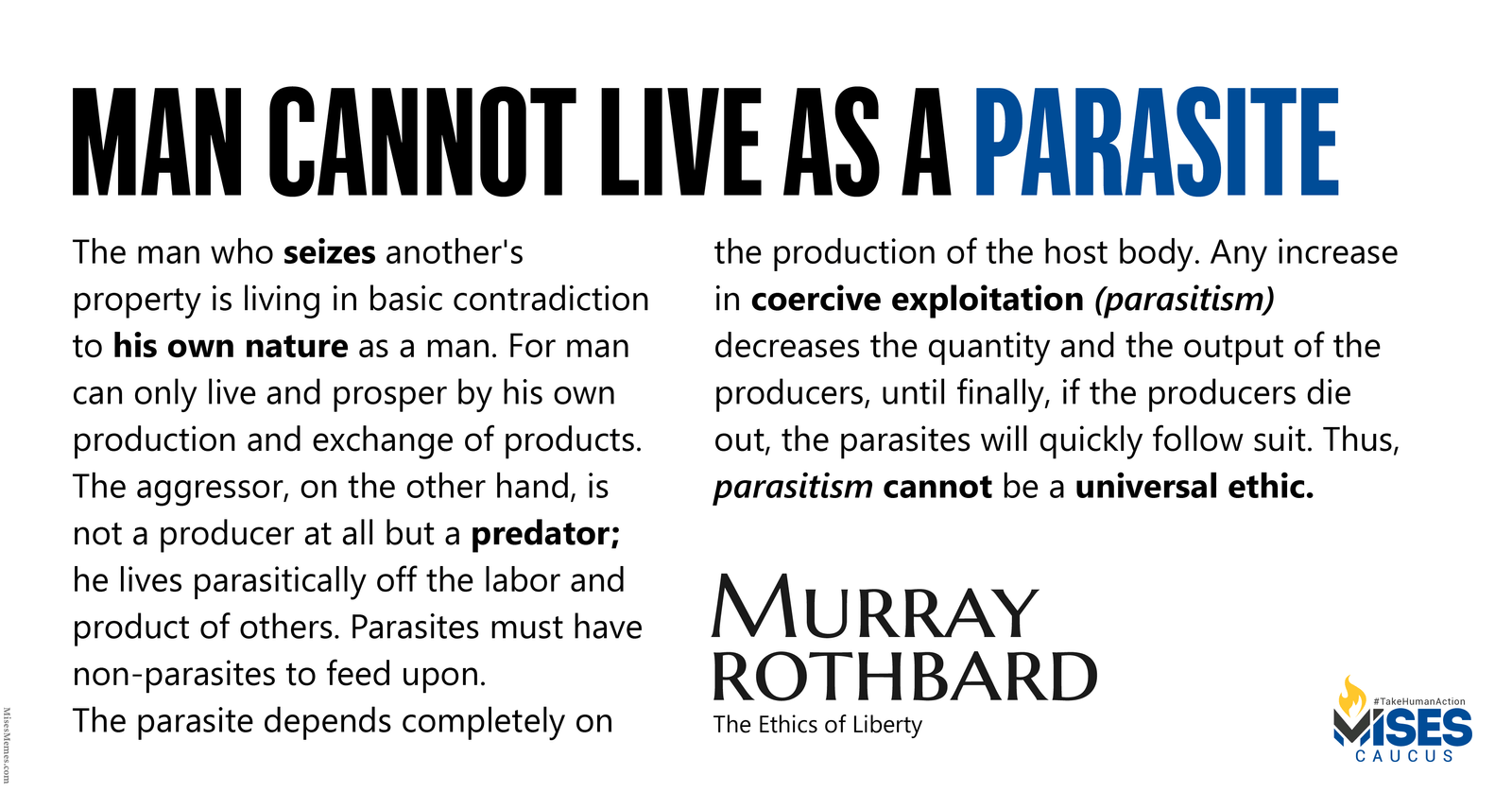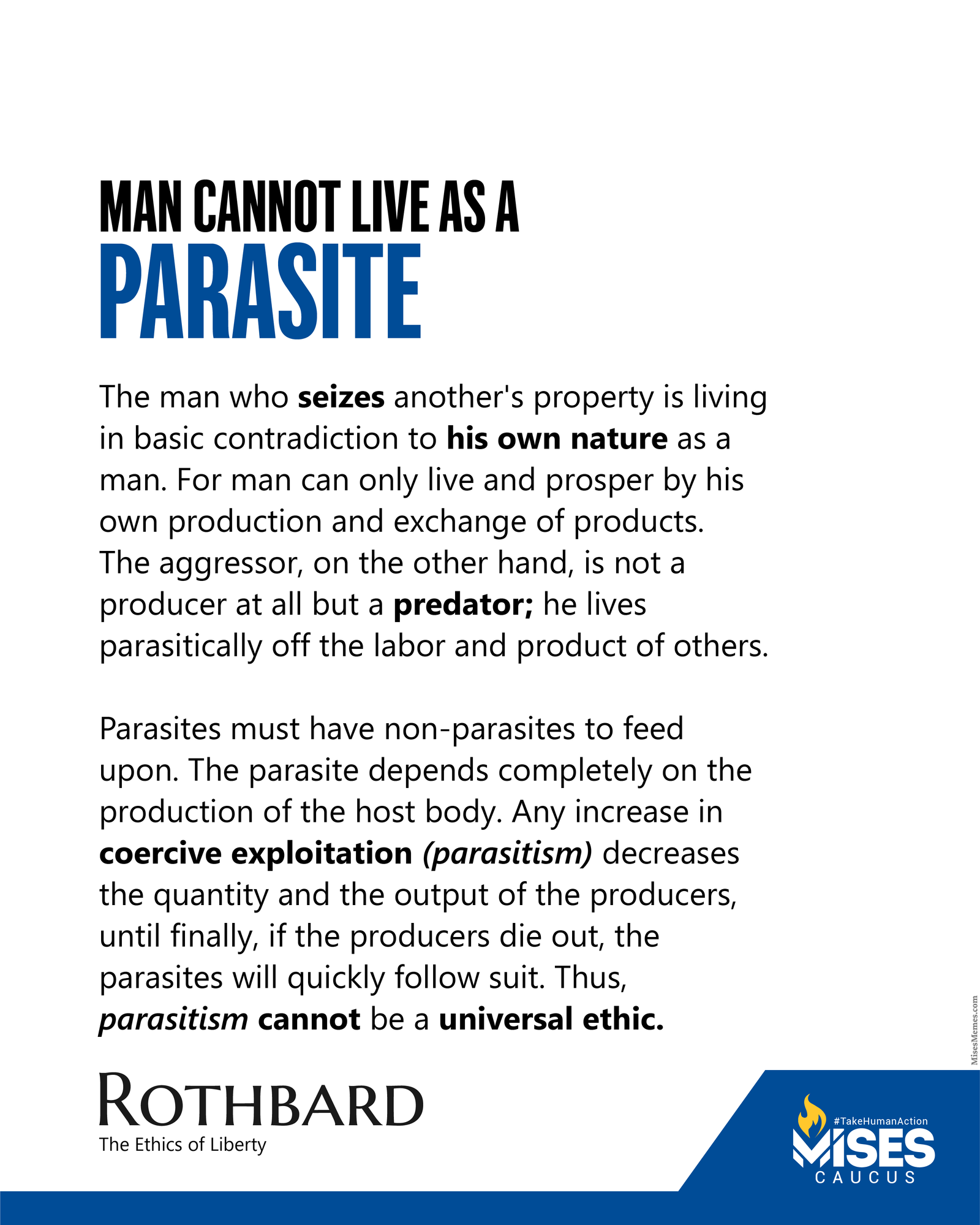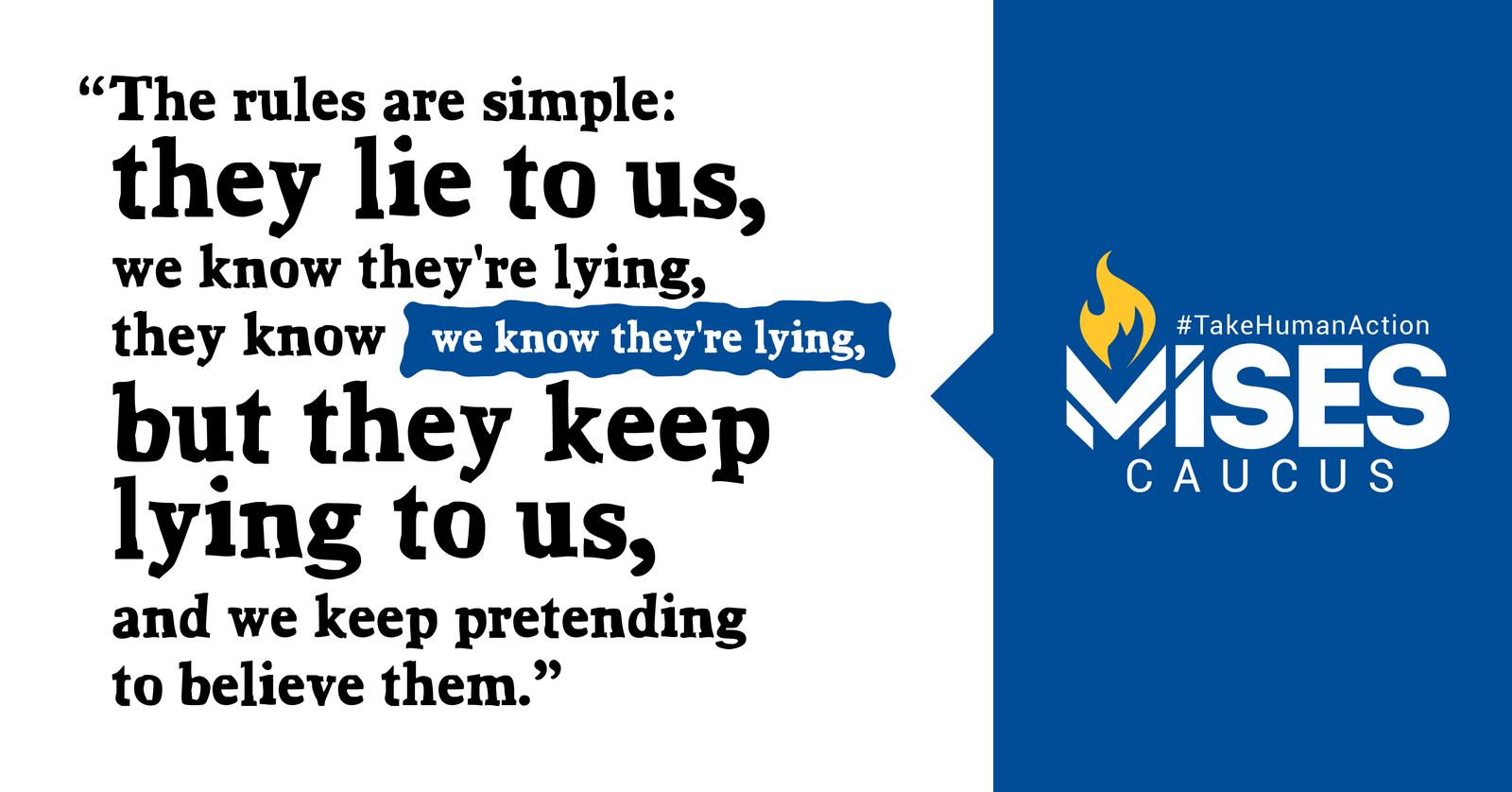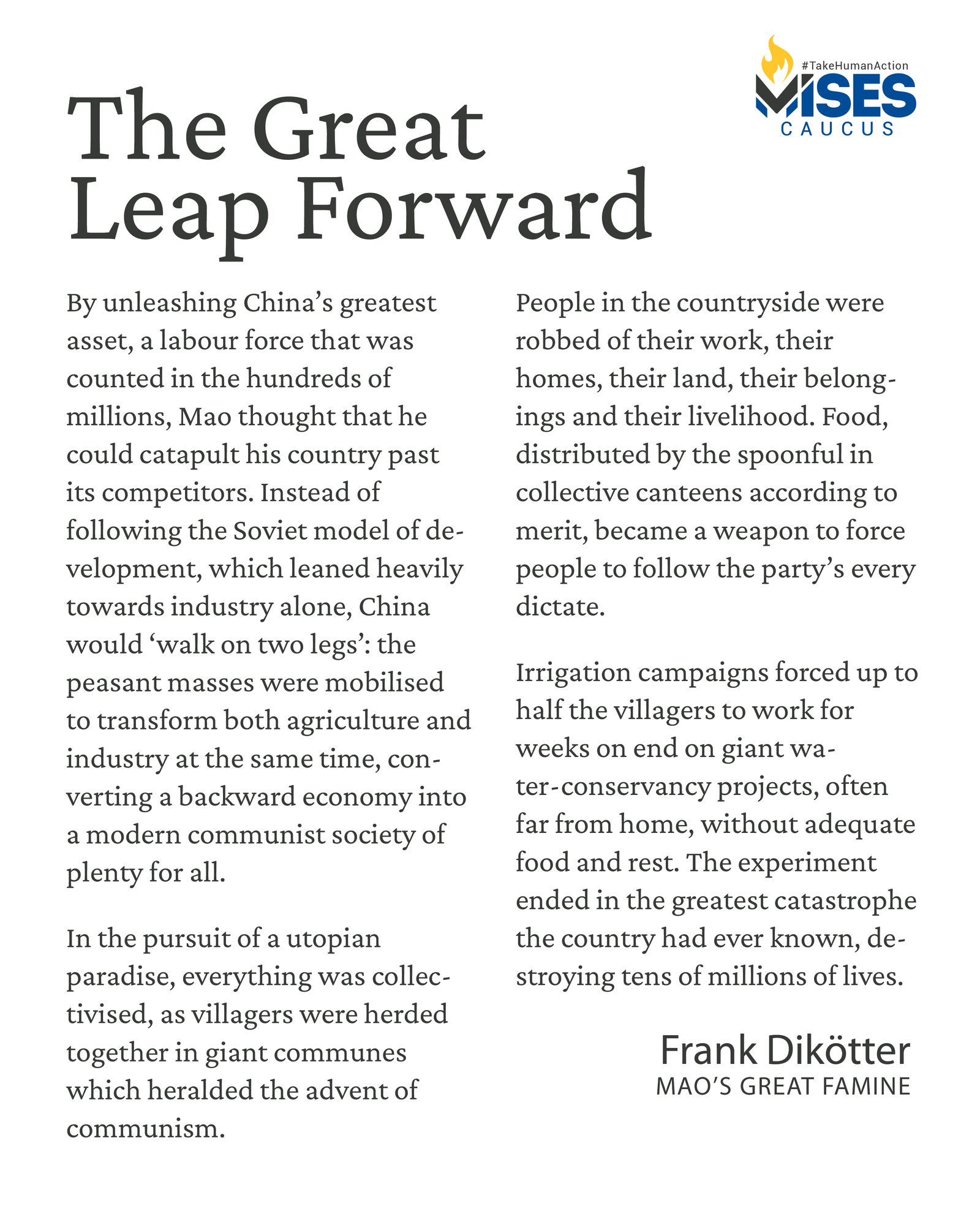The man who seizes another’s property is living in basic contradiction to his own nature as a man. For man can only live and prosper by his own production and exchange of products. The aggressor, on the other hand, is not a producer at all but a predator; he lives parasitically off the labor and product of others. Parasites must have non-parasites to feed upon. The parasite depends completely on the production of the host body. Any increase in coercive exploitation (parasitism) decreases the quantity and the output of the producers, until finally, if the producers die out, the parasites will quickly follow suit. Thus, parasitism cannot be a universal ethic. —Murray Rothbard






